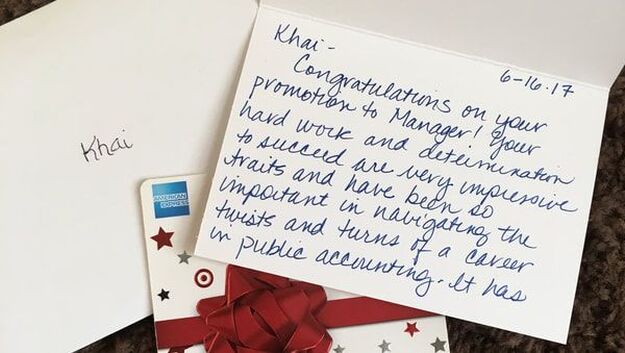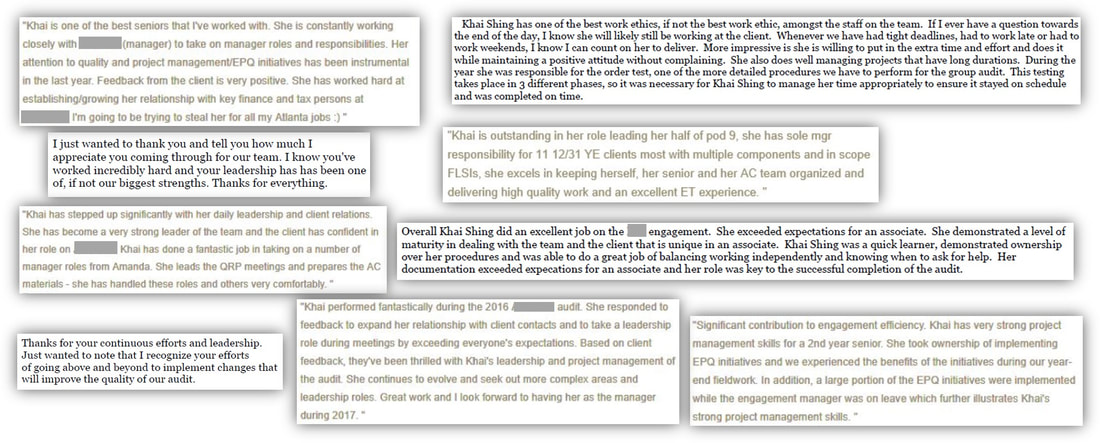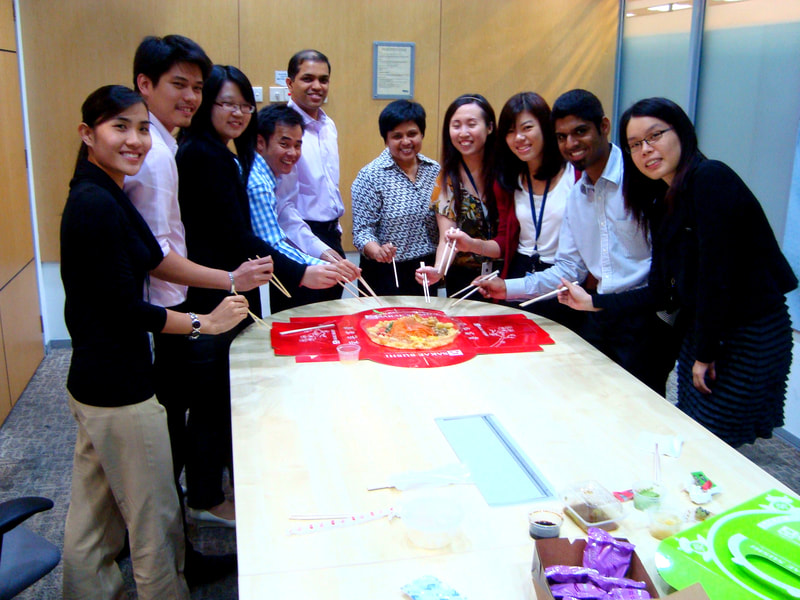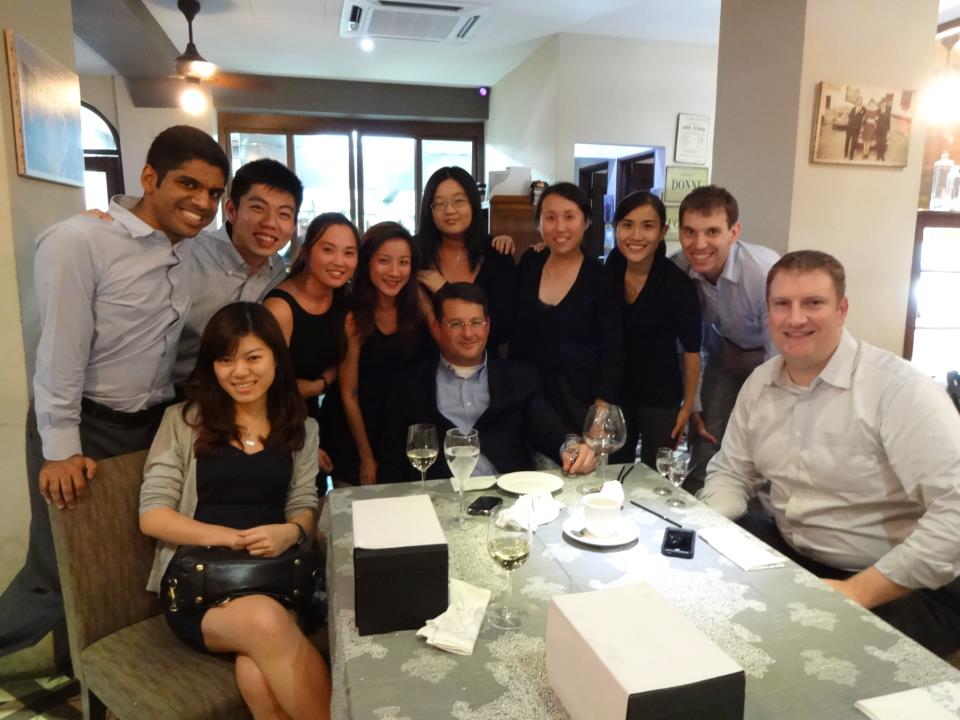|
It's hard to believe that it has been 10 years since I started my career in Malaysia, and this is already my 6th year working in the US. I recently read a book called "Breaking the Bamboo Ceiling", and it made me reflect on my own experiences over the past 6 years, learning and navigating the American corporate culture. More importantly, it made me realize how much Confucian values (which is found in many Asian cultures) influenced my mindset, shaped my characters and behaviors in the workplace. I am proud of my heritage and culture that emphasizes harmony, self-control, perseverance, hard work and humility. Even though not all Asians operate under the same system of values, these cultural values explain why Asians are often labeled as the model-minority in a diverse and multiracial society. I am a minority in both countries I call home - Malaysia and the US. While minorities are often associated with discrimination and racism, I have never thought of it as a negative as I choose to look at it from a different lens. That's probably because I grew up with an understanding of race-based policies (that favor the majority) being a fact of life, and we are expected to rely on ourselves to blaze our own trails and lift ourselves up. This awareness motivated me to work harder and thrive through education, with the ultimate goal of securing a good job and attaining financial security. Even though it might sound unfair that I accepted the fact that I may have to "work twice as hard to get half as much", it is still a much better alternative than complaining and feeling like a victim of the system. I'd like to think that once I am more established in the company and gain credibility, people will see beyond race and the playing field will be leveled. However, just working hard and doing a good job is not enough to progress up the ladder. My Asian-ness and the cultural values I uphold are often at odds with the competencies and behaviors needed to succeed in corporate America. For my fellow Malaysian peers who think it's all rainbows and sunshine making USD here, I'd also like to share about the challenges and differences that I've had to overcome and navigate through. P.S. These are just my personal experiences, definitely not a representation of all Asians or Americans. Focus on Education vs. Finding your Yourself/Passion My grandparents survived World War II. Having lived through war times and being first/second generation immigrants, they know that education is the most important vehicle for upward mobility and status. That explains why our parents and grandparents placed strong emphasis on our education. We grew up with the understanding that by studying hard and doing well in government exams, we will be able to get into good schools and major in a profession that provides long-term financial security and status. Graduating from a good university with a stable profession (i.e. medicine, law, engineering, accounting) is seen as an automatic ticket to success and lifetime employment. This is also why Asians are always perceived to be good in math. =P In contrast to the Western way that focuses on finding yourself, be anything you want to be, follow your passion, and figuring out your career path; the Asian path is commonly criticized for the lack of flexibility, creativity and innovation, but is a much more realistic and stable path. It's a never-ending debate to say which system is better but that's not the point. I'm a proud product of an Asian education system and it has worked out well for me. Being educated and the willingness to learn translate to many parts of our lives, and enable us to strive for a better life. After all, knowledge and skills are things that no one can take away from us. Work Speaks Louder than Words vs. Work Speaks Nothing without Words I grew up in a culture where hard (and good) work would be rewarded and merit recognized. Put your head down, don't complain, have a strong work ethic, and your efforts would be recognized. Brown-nosing, schmoozing, and politicking were never part of the picture as they are perceived as negatives. Unfortunately, the rule of game in corporate America is different. Your success is not just determined by diligence and quality of work delivered, and you can't depend on your accomplishments to speak for themselves or hope that someone will notice you. Putting your head down for too long may only keep you in your seat, not move you up on the corporate ladder. It is no longer sufficient to just do a good job. In fact, you may risk doing all the grunt work without getting credit for it. You need to be sensitive to the American emphasis on participation, where communicating, networking, and speaking out is valued as a sign of engagement and as a way of establishing your presence. I'm not a fan of this new rule of game and I'm aware that I may never play the game as well as my American peers being an introvert. However, I will continue to put in the hard work, communicate and build relationships in a way that I'm comfortable with, even if it means taking more time and putting in more effort to promote and showcase my accomplishments. Modesty and Humility vs. Tooting Your Own Horn I have always been taught that modesty and humility are virtues, and it is frowned upon to boast about personal accomplishments. People who self-promote about their own accomplishments are seen as someone who thinks they know it all and are full of themselves. Even when I receive compliments about my accomplishments, I have the tendency to play it down and be self-effacing. In a highly individualistic society like the US, the saying "The squeaky wheel gets the grease" is in play, especially in the workplace. The American corporate environment emphasizes the necessity of self-promotion and campaigning to move up in the corporate ladder. It is your responsibility to actively seek out opportunities, be visible to senior manager, be vocal about your accomplishments, and be up front about what you want on the job. When I first started working in the US, I remember a superior advising me that I should 'show face' in the office more and proactively meet up with the partners for lunch so that I can be in their line of vision, which will help during performance reviews. The need to self-promote and constantly look for ways to get my accomplishments known goes against everything I was raised with and feels completely out of character for me. The sad fact is that I can be great at what I do but still get overlooked for promotion because I don't speak up enough. Like it or not, I know that most of the responsibility rests on me to fend for myself. Over the years, instead of forcing myself to go against the virtues I value, I've learnt to be comfortable climbing the corporate ladder at my own (slower) pace. Respect for Authority vs. Questioning Authority The Confucian influence in many Asian cultures places a tremendous emphasis on respect for elders, which can reduce assertiveness in Asian employees when dealing with their bosses, coworkers, and clients. I was taught to be non-confrontational and to be respectful of elders and others in authority. When it comes to meetings and discussions, Asians tend to let everyone have their turn to speak first before they take the plunge because hearing everyone out and waiting is the respectful thing to do. The corporate culture in America values outspokenness, assertiveness, and creativity. It is completely acceptable to challenge or oppose business decisions, and share your views openly with your superiors and those in authority. It is not uncommon for subordinates to push back on requests and justify their viewpoints, regardless of superiority. As compared to my American peers, I am certainly not confrontational at all and may not sound as assertive when dealing with the bosses. I am more reserved and don't feel comfortable schmoozing with the bosses as I want to be respectful. When approached with huge workload or tight deadlines, I tend to think that the deadlines and resources allocated to me are appropriate with the assumption that those in authority knows better than I do, and do not usually push back for additional resources. Avoid Conflict vs. Assert your Opinions Confucian values emphasize harmony over conflict, and I am all about avoiding conflict at the workplace to maintain a pleasant working relationship with my co-workers. I prefer to listen and avoid voicing disagreements or asserting my opinions in the moment, especially in a large group settings due to the fear of being wrong or offending someone. I'm more comfortable communicating my opinions and thoughts after carefully thinking through what and how I want to say it in a private setting. In an attempt to be non-confrontational and avoid making someone look bad, I prefer to lead someone into figure out their own mistakes indirectly instead of blatantly pointing out their mistakes. The US was founded on the principle of freedom, which includes freedom of speech. Direct and assertive communication reflects confidence and interpersonal abilities, which is essential to be a good leader. Conflicting views doesn't stop people from sharing their opinions and thoughts. "Those who know do not speak. Those who speak do not know." - Lao Tzu Humility and conflict avoidance, two good traits that I've learnt to embrace since young turned out to be a disadvantage in corporate America. I'm consciously aware that I don't know everything and am always willing to listen and learn. As such, when faced with confrontational situations, I tend to avoid asserting anything until I am 100% certain I'm right. This may make me look like I lack confidence but I'd rather stay silent than saying the wrong thing or creating conflict. Bear in mind English is still my second language after all and there are times where what I want to convey can get lost in translation. I'm absolutely fine contributing my opinions and suggesting ways that things can be done differently in a non-confrontational manner. If people choose to listen, I'm more than happy to share more. If not, I won't push it either. Collective Decision Making vs. Individualistic Thinking Asians tend to place the group's interests over individual interests, often crediting the team rather than standing out too much or taking all of the credit themselves for a job well done. Personally, I'd always ask my team members for their opinions and thoughts in making decisions, regardless of superiority. Some may see it as a form of affirmation, but it's also a way to ensure that I'm not off-base with my thoughts. The US is a highly individualistic society. The emphasis on self-promotion to move up encourages people to toot their own horns and take credit for their individual leadership and accomplishments. That is how you stand out and differentiate yourself from your peers. Politicking is inevitable in an environment like this. This individualistic thinking makes it difficult to cultivate a genuine sense of teamwork, especially when team members have competing interests over promotions and bonuses. It is easy for people who are eloquent, thick-faced and have high self-confidence to strive in corporate America. Unfortunately, that's not who I am. I don't want to be known as an arrogant or self-centered manager. I'd much rather have a team who is happy and willing to work hard with me as it will make my job easier and more manageable. Blend in vs. Stand out I am the only Asian in my office of 100+ employees, and being a petite Asian woman in a managerial position in the south, it is impossible for me not to stand out. Stand out in the sense that the mail room staff who has never met me before knows which package belongs to me without me giving my name. But no, I don't feel offended at all, I'm just glad to be easily recognizable. Perhaps I'm just insensitive, but I've never thought much about how my colleagues and clients see me as a person of color. I felt like I adapted and blended-in quite smoothly into the American workplace. I'd like to think that my ability to converse fluently in English, despite it being my second language, helped to break down a lot of barriers and perceptions that Americans have towards Asians. In fact, most of my co-workers don't even know that my first language is actually Mandarin. I am fully aware that there are people who had or will continue to have doubts about my credibility and ability due to my Asian-ness, but it doesn't bother me. I know that my heritage, race and skin color could be both strengths and weaknesses. While I can't control how others think, I have full control over how I choose to react and respond. Just like everyone else in the company, my focus is to put my best foot forward, do a good job, build trust, and earn respect and recognition through my work performance. To be fair, I'm fortunate to work in a company that promotes diversity and inclusion, and my co-workers are a diverse group of educated individuals who knows how to behave professionally. Assimilation vs. Acculturation Assimilation is adopting the dominant culture's behaviors, values, perspectives, and characteristics at the expense of one's own cultural characteristics. Acculturation is adapting to new cultural patterns of the dominant culture while continuing to maintain values, perspectives, and features of one's native culture. I choose to acculturate. I'm know how I'm supposed to act and behave to "break the bamboo ceiling" quicker, but I prefer to walk through the bamboo forest comfortably in my own way, at my own pace, and enjoy the views along the way. =) Lessons Learnt As an Asian female minority who grew up in a multiracial, multicultural, multilingual country, and spent the last 6 years working in the south with the most diverse team in the entire office, here are some perspectives and thoughts that I'd like to share:
Diverse teams I've enjoyed working with in Malaysia and the US over the past 9.5 years.
0 Comments
Leave a Reply. |
Categories
All
ArchivesMay 2021 January 2021 November 2020 August 2020 June 2020 May 2020 April 2020 March 2020 December 2019 August 2019 July 2019 May 2019 December 2018 October 2018 September 2018 August 2018 July 2018 June 2018 May 2018 March 2018 February 2018 December 2017 November 2017 October 2017 September 2017 August 2017
|







 RSS Feed
RSS Feed
